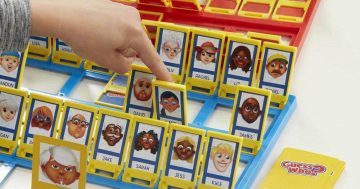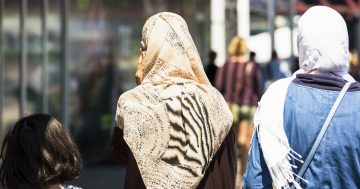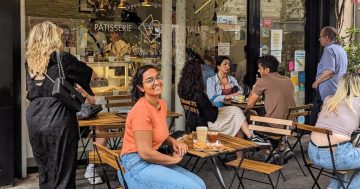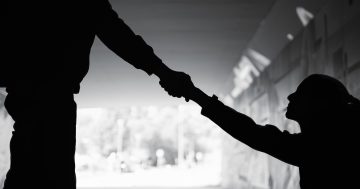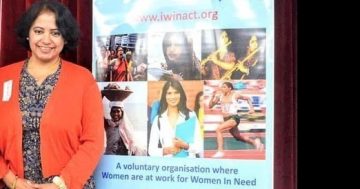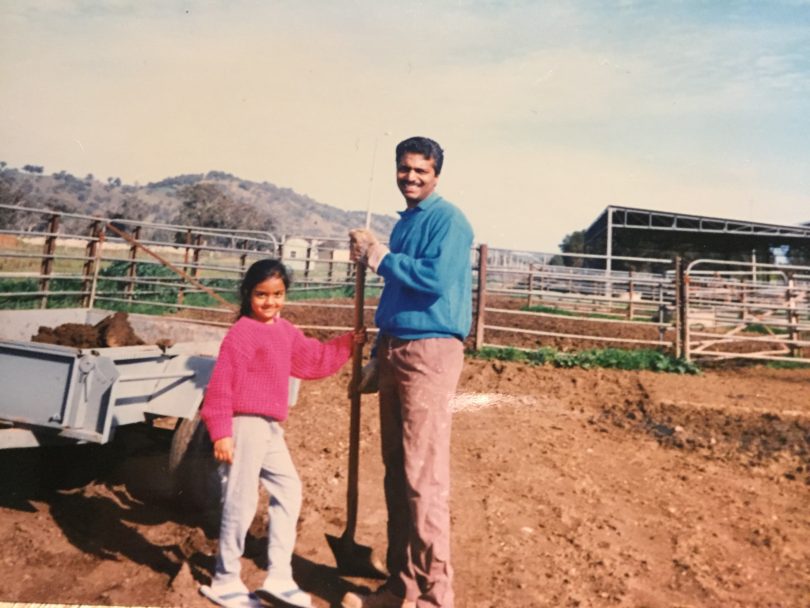
Zoya and her father gardening. Photos: Supplied.
When I was at university, I worked casually at a pharmacy in an outer suburb of Canberra.
The owner and pharmacist was a pleasant gentleman who went by the name of ‘Bob’, even though his real name was Sanjay. Bob was Indian (Punjabi, born and raised in Kenya), and I, too, am Indian (Gujarati, born in Fiji, raised in Australia).
Barely a week went by without someone mistaking me for Bob’s daughter.
“How’s your dad going?” customers would ask with a smile, and I would shrug and say, “Well, he’s at home and doesn’t know you, but I can let him know you asked?”
If I was in a less sarcastic mood, I would simply say “Bob isn’t my father. We’re just both Indian”. Once a customer replied with: “Well, he’s a very nice man”, as if by denouncing our possible family ties I was implying he wasn’t. I responded, “So is my real dad”.
Interestingly, at the time I also worked with a close friend at our local cinema. My friend was tall, lean and blonde, and our boss was an older woman, also tall, lean and blonde. No one ever suggested that they were related.
Before the pandemic, I was at Canberra Airport waiting to get through security.
A man about three people ahead of me in the queue was approaching the belt. He had brown skin too, though from my estimation was more likely to be Pakistani than Indian. The security officer leaned around the bench to look at me and said, “Are you two together?” I looked, bewildered, at the multiple people between me and the man in question, and answered, “No – he is a complete stranger”.
I can only assume their assumption was that because we were both brown we must be related.
These small moments of casual racial assumptions are part of a broader pattern in my life of regularly being lumped in with every non-white person around, repeatedly being expected to justify where I’m ‘from’ (if you must know, I’m originally from Queanbeyan), and generally having to counteract and dodge people’s stereotypical attitudes to people of colour day in, day out.
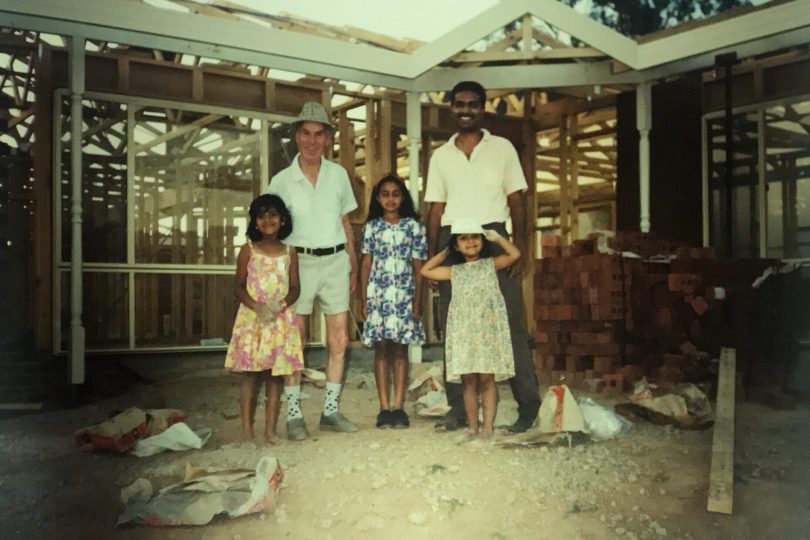
Zoya (right) with her two sisters, a family friend and her father building their house. Photo: Supplied.
I know that people in the scenarios I’ve described are rarely being racist. I can tell the difference because I’ve also been subjected to enough aggressive racism to know. I’ve watched my mum being screamed at by strangers in Garema Place because she wore a hijab, and once had someone approach us at Woden Shopping Centre to tell her that she “wasn’t welcome here”, as if our citizenship certificates were null in the face of their prejudice. I myself have been called more derogatory names than I can bother to count, beginning at the age of 5 when I was pushed off the swings at preschool because I was “brown like poo”.
Compared to these experiences, being mistaken for my boss’s daughter or some stranger’s wife might seem trivial, and I know that the people in question are well-meaning and simply haven’t paused to consider why their assumptions are steeped in a history of racial stereotyping. But they point to a bigger picture of frustrating preconceptions that many people of colour have to deal with daily.
I shouldn’t have to apologise for not being related to Bob, just because it makes a customer feel awkward to realise that they’ve literally assumed that two brown people must be related because they’re in the same vicinity.
Similarly, should I be expected to explain where I’m from any more than a white Australian should, given this is a land largely made up of migrants, with the exception of First Nations Australians?
Interestingly, the reaction I get from most people when I write about these experiences or discuss them with friends is surprise that they could happen in Canberra. We pride ourselves on being an inclusive and welcoming community, and for the most part we are that, so it is shocking to learn that pockets of racism or prejudice still exist in 2020.
Often my white friends will say things like, “I’ve never seen anyone be racist in Canberra!”, to which I have to reply, “That might be because you’re white, so it’s unlikely to happen to you”.
I love living in Canberra, and on balance I do think we have a warm, inviting and genuinely inclusive community here. Moving here after growing up in a smaller town in regional NSW was incredible. I went from being one of three non-white kids at my school (the other two being my sisters), to being one of many in a truly multicultural community.
But there is always room for us to do better, and to keep challenging the prejudices that lurk in all of us – myself and other people of colour included. Next time I get mistaken for being related to a stranger just because we’re both brown, I’m going to take the time to interrogate it more.
“No, we’re not related,” I’ll say, “But it’s so interesting that you assumed that. Why do you think that is?”
Maybe by challenging the pattern, we can break it.












